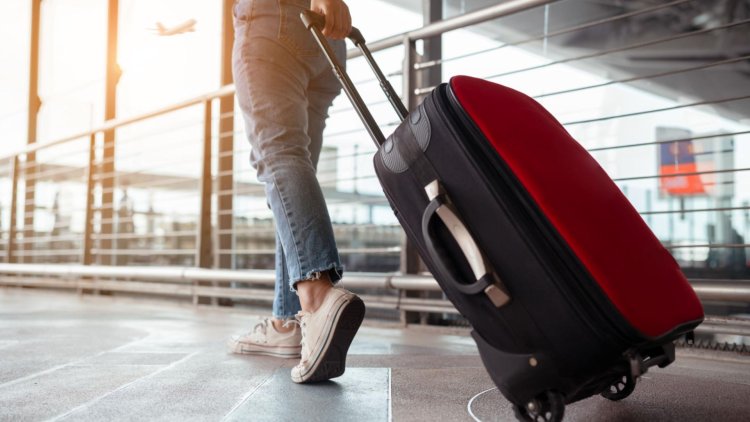1. What is travel insurance?
Travel insurance is a type of insurance policy designed to cover various risks and uncertainties associated with traveling. It typically includes coverage for medical emergencies, trip cancellations, lost baggage, and other travel-related issues. By purchasing travel insurance, travelers can protect themselves against financial loss and gain peace of mind during their journey.
2. Why is travel insurance important?
Travel insurance is important because it provides financial protection and support in case of unexpected events during your trip. This can include medical emergencies, trip cancellations, lost luggage, and travel delays. Without insurance, you could face significant out-of-pocket expenses and logistical challenges if something goes wrong.
3. What does travel insurance usually cover?
Travel insurance usually covers several key areas:
- Medical Emergencies: Costs related to illness or accidents.
- Trip Cancellation/Interruption: Reimbursement for non-refundable expenses if your trip is canceled or cut short.
- Lost/Delayed Baggage: Compensation for essential items and lost belongings.
- Travel Delays/Missed Connections: Coverage for additional expenses due to delays.
- Emergency Assistance Services: Access to 24/7 support for various emergencies.
4. How does travel insurance cover medical emergencies?
Travel insurance covers medical emergencies by reimbursing expenses related to medical care, such as hospital stays, doctor visits, and prescription medications. Some policies also include coverage for emergency medical evacuations, which can be crucial if you need to be transported to a different location for treatment.
5. What should I do if I need medical assistance while traveling?
If you need medical assistance while traveling, contact your travel insurance provider’s emergency assistance hotline as soon as possible. They can guide you on how to receive medical care, provide referrals to local healthcare providers, and assist with arranging any necessary medical evacuations.
6. How can travel insurance help if I need to cancel or interrupt my trip?
If you need to cancel or interrupt your trip, travel insurance can reimburse you for non-refundable travel expenses, such as flight tickets, hotel reservations, and prepaid activities. Coverage typically applies if you need to cancel due to reasons covered by the policy, such as a family emergency or sudden illness.
7. What should I do if my luggage is lost or delayed?
If your luggage is lost or delayed, report the issue to the airline or transport provider immediately. Keep all documentation, such as baggage claim tickets and receipts for essential items purchased. Contact your travel insurance provider to file a claim for compensation for delayed baggage or lost belongings.
8. How does travel insurance cover travel delays and missed connections?
Travel insurance covers additional expenses incurred due to travel delays, such as accommodation, meals, and transportation. It also provides reimbursement for missed connections, helping you to manage the costs associated with rebooking flights or arranging alternative travel plans.
9. What are emergency assistance services in travel insurance?
Emergency assistance services are 24/7 support provided by travel insurance companies. These services offer help with various emergencies, including medical issues, travel disruptions, and logistical challenges. They can assist with finding local medical providers, arranging emergency transportation, and more.
10. How can travel insurance protect me against travel risks and uncertainties?
Travel insurance protects you against various travel risks, such as natural disasters, political unrest, or other unforeseen events that may affect your trip. Coverage may include reimbursement for trip cancellations or interruptions due to these risks, providing you with financial protection and peace of mind.
11. What factors should I consider when choosing travel insurance?
When choosing travel insurance, consider factors such as:
- Trip Duration: Longer trips may require more comprehensive coverage.
- Destination: Some destinations may have higher medical or travel risks.
- Activities: Ensure coverage includes any high-risk activities you plan to engage in.
- Pre-existing Conditions: Check if coverage includes pre-existing medical conditions.
12. Are pre-existing medical conditions covered by travel insurance?
Coverage for pre-existing medical conditions varies by policy. Some policies offer limited or no coverage for pre-existing conditions, while others provide coverage with certain conditions or exclusions. It’s important to read the policy details and consult with the insurance provider to understand the coverage options available.
13. Can I purchase travel insurance after I’ve already started my trip?
Typically, travel insurance should be purchased before your trip begins. However, some providers offer policies that can be purchased during the trip, often with limitations on coverage for certain issues that occurred before the policy was bought. Check with the insurance provider for specific details.
14. What is the process for filing a claim with travel insurance?
To file a claim with travel insurance, follow these steps:
- Notify the Insurance Provider: Contact them as soon as possible after the incident.
- Gather Documentation: Collect receipts, reports, and any other relevant documents.
- Complete a Claim Form: Fill out and submit the claim form provided by the insurer.
- Submit Evidence: Provide all required documentation to support your claim.
15. How do I know if my travel insurance covers a specific situation?
To determine if your travel insurance covers a specific situation, review the policy’s terms and conditions, including coverage limits, exclusions, and any specific clauses related to the situation in question. Contact your insurance provider for clarification and to ensure that you understand the coverage details.
16. Are there any exclusions in travel insurance policies?
Yes, travel insurance policies often have exclusions, which are specific situations or conditions that are not covered. Common exclusions may include:
- Pre-existing Medical Conditions: Limited or no coverage.
- High-Risk Activities: Certain activities may not be covered.
- Travel Advisories: Policies may not cover travel to areas under travel advisories.
17. How much does travel insurance cost?
The cost of travel insurance varies based on several factors, including:
- Trip Duration: Longer trips may cost more.
- Destination: Higher-risk destinations may increase the cost.
- Coverage Level: More comprehensive coverage generally costs more.
- Traveler’s Age and Health: Older travelers or those with health issues may pay higher premiums.
18. Can travel insurance be customized to my specific needs?
Yes, many travel insurance policies offer customization options. You can often select additional coverage for specific needs, such as high-risk activities, higher coverage limits, or coverage for pre-existing conditions. Discuss your needs with the insurance provider to tailor the policy to your requirements.
19. What should I do if I have a dispute with my travel insurance provider?
If you have a dispute with your travel insurance provider, follow these steps:
- Contact Customer Service: Discuss the issue with the provider’s customer service department.
- Review Policy Documents: Ensure that you understand the policy terms and conditions.
- File a Formal Complaint: If unresolved, file a formal complaint with the provider.
- Seek Mediation: If necessary, seek assistance from an independent dispute resolution service or regulatory body.
20. How can travel insurance give me peace of mind?
Travel insurance provides peace of mind by offering financial protection and support for unexpected events during your trip. Knowing that you have coverage for medical emergencies, trip cancellations, lost luggage, and travel disruptions allows you to focus on enjoying your journey rather than worrying about potential problems.




















